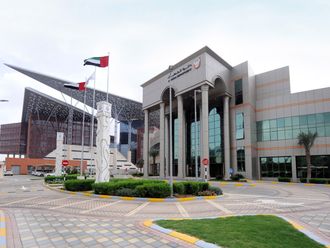Last week the European Union Parliament ratified a three-year-old UN bio-safety protocol regulating international trade in genetically modified (GM) food.
The protocol lets countries ban imports of a genetically modified product if they feel there is not enough scientific evidence that the product is safe and requires exporters to label shipments containing genetically altered commodities such as corn or cotton.
The move opens the way for EU governments to give the UN accord, negotiated three years ago in Montreal, Canada, legal effect.
Labelling GM products could be a compromise in the trade row between the two main trading blocks on the globe — the USA and EU.
But the United States, a major producer of biotech crops, did not sign the protocol, saying it was opposed to labelling. It had also fought import bans. The last fight began in the middle of May, when Washington decided to put a case before the World Trade Organisation (WTO) against EU's five-year-old ban on importing GM foods.
The dispute between the world's two biggest trading partners goes deeper than a simple trade battle. As well as leading European opposition to the war on Iraq, France has spearheaded EU states, which in 1998 formed a blocking minority, against authorising new genetically modified products.
But the French are not alone in worrying about opening the EU market to biotech products, popularly branded "Frankenstein foods", after European scandals over mad cow disease, dioxin poisoning of chicken and foot-and-mouth disease scared consumers.
Since the transatlantic economic relationship is worth some $2.5 trillion, the dispute is not a simple issue.
In 1998, the United States exported $63 (M) million worth of corn to the European Union, but the exports dwindled to $12.5 (M) million last year. American farmers growing GM crops lose $300 million as they deprived access to the EU lucrative market.
Last August when some southern African nations facing famine rejected U.S. food aid because it included genetically modified grain, Washington was furious. The Americans accused the Europeans of using their influence in Africa to stop the GM food aid.
Some scientists claim that the new technology is aimed at alleviating hunger in poor countries by increasing the output of the constrained farmland of the globe.
Environmentalists and other campaigners argue that the GM plantation is not a solution to world hunger and poverty.
The British NGO agency, Action Aid, said in a recent report that GM seeds are more suited to the needs of large-scale commercial farmers, with no consistent evidence that they yield more and require fewer chemicals.
There is no evidence to support claims that genetically modified crops will help solve world hunger, as the report put it. GM varieties will not meet poor farmers' needs and could cause food insecurity by pushing them deeper into debt as they become more reliant on expensive seeds and chemicals.
It said the development of 'Terminator technology' to produce sterile seeds will prevent farmers from following their traditional practice of saving seeds from one harvest to the next.
In fact it's neither the health of consumers, nor the goodwill to feed millions of hungry poor that fuels the current dispute. It's a new show of might, this time in trade, between the two sides of the Atlantic.
There is a great deal of business interest, and Washington seems to be determined to open up all destinations to its interests. The United States is a world leader in planting biotech crops, growing 75 per cent of its soybeans, 34 per cent of its corn and 71 per cent of its cotton from gene-altered seeds.
One in three U.S. acres is now planted with genetically modified crops. Last year, U.S. farmers planted genetically modified crops -mostly soy and corn- on 92 million acres.
In 1996, the first year genetically modified crops were commercially available, about 4.3 million acres (1.7 million hectares) were under biotechnology cultivation worldwide.
Traditionalists, claiming that GM soybeans are carcinogenic, shouldn't hinder American leadership in this new produce. There's a growing fear of mounting pressure from big business on Washington to use the transatlantic trade spat over GM crops as a test case for an all-out assault on EU health and safety rules.
The next target by the Bush administration could be EU rules on recycling, animal testing and chemicals. The powerful American business lobby group, the National Foreign Trade Council (NFTC), has a list of regulations it would like Europe to abandon.
The U.S. State Department web site prominently displays a paper entitled "Looking Behind the Curtain: The Growth of Trade Barriers that Ignore Sound Science", published by the NFTC, whose members include Hallibur-ton, the energy firm once run by vice-president Dick Cheney.
The report criticises Europe's practice of banning imports it believes may be risky, deriding this "precautionary principle" as "an inherently unscientific touchstone". It calls Europe's restrictions on GM crops a "disguised trade barrier".
The NFTC also singles out other rules it would like to see struck down — including Japanese restrictions on apple imports and Korean rules on nuts.
The list of products that could be affected includes a wide range of foods and other consumer goods, from cars to toiletries.
If the trade war with Europe is won, who can challenge the American trade invasion?
The U.S. is using the GM foods case as a "show of strength" to force the EU into relaxing a much wider range of trade rules. This would be a preemptive strike against any potential obstacle elsewhere that may slow American trade expansion.
Economic Outlook: U.S. preemptive strike policy is applied to trade
Economic Outlook: U.S. preemptive strike policy is applied to trade












